
By Hilary Disch
Thirty weeks ago, Prevention Point Philadelphia (PPP) started our #30thThursdays campaign to raise awareness around harm reduction and PPP's vital services leading up to our 30th Anniversary Celebration today on Tuesday, October 18. Read on to learn the 30 things you didn't know about PPP!
-
Prevention Point Philadelphia was founded 30 years ago by ACT UP Philadelphia. The Philadelphia chapter of ACT UP started running a syringe exchange in 1991, which was against the law at the time.
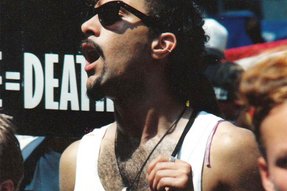
John Paul Hammond, HIV/AIDS Activist and PPP Co-founder. -
Prevention Point Philadelphia has grown from providing one service to an organization of seven departments. 30 years ago, our primary service was the syringe exchange. Now, we have 22 programs and over 160 staff members, along with interns and volunteers.
-
The original Prevention Point Philadelphia staff risked arrest to provide sterile equipment to people using drugs and reduce the rate of HIV transmission. The syringe exchange was legalized in 1992 by then-mayor Ed Rendell.
-
Prevention Point Philadelphia helped prevent 10,592 people from acquiring HIV between 1993 to 2002. This effort saved lives, and $182 million in taxpayer dollars.
-
Prevention Point has always valued both lived experience and educational experience in our staff, from "street degrees" to PhD’s. Our programs and participants benefit from the knowledge of people with lived experience.
-
Prevention Point deeply respects and values transgender community members. In 2003, PPP and the Gay and Lesbian Latino AIDS Education Initiative (GALAEI) founded the first HIV prevention organization in Pennsylvania specifically for transgender individuals.
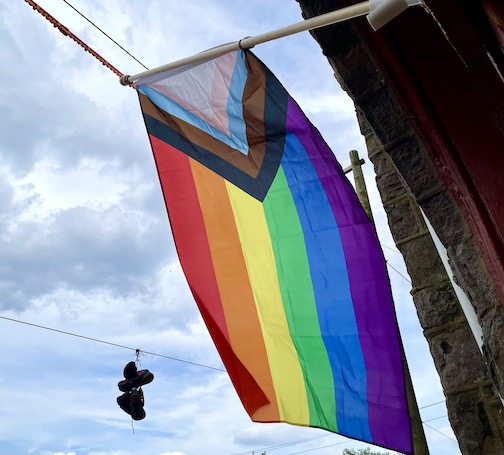
Every June PPP staff display the LGBTQ Progress Flag at our Monmouth Street entrance. -
The Prevention Point Philadelphia Drop-In Center serves over 76,400 cups of coffee every year. The ideal cup of coffee has extra sugar, extra creamer, and extra love!
-
Prevention Point Philadelphia has a post office — we currently provide mail to over 5,000 people who do not have a stable mailing address. Just a few weeks after COVID-19 hit, our number of mailboxes increased by 227%.
-
Prevention Point houses more than 60 people facing homelessness all year long at our emergency shelter, Beacon House. Our housing case managers connect residents to services and help them transition to permanent housing.
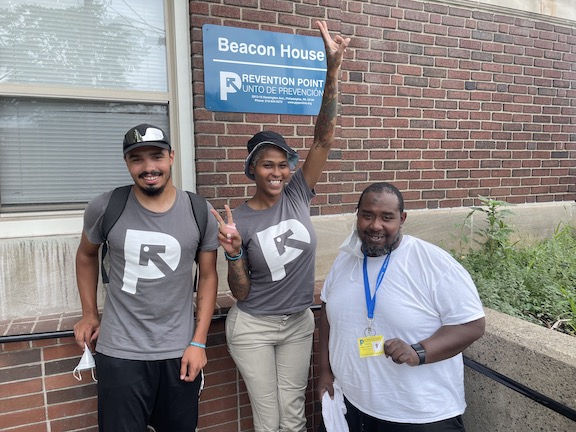
Housing staff members Joel, Taylor, and Ronald pose outside of Beacon House. -
Prevention Point's Police Assisted Diversion Program (PAD) helped divert 388 arrests in FY2022. People who have committed minor and non-violent offenses need supportive services, not jail time.
-
Prevention Point hits the streets to help individuals experiencing homelessness. Our Homeless Outreach team meets people where they are by visiting encampments and building lasting relationships with people living outside.
-
The Prevention Point Drop-In Center welcomes 200 people every day with a warm, safe place to sit. At the Drop-In, participants can wait for services, collect their mail, and rest in community.
-
Prevention Point staff helped 743 participants receive state-issued IDs last year. Having an ID opens doors to more services throughout the city. We walk participants through the process.
-
National media look to us for expertise – we've been quoted in The New York Times, TIME Magazine, NBC National News, Wall Street Journal, and others.
-
We serve over 36,300 individuals each year through our Syringe Services Program (SSP) alone. SSP serves as a doorway to our many other medical, behavioral health, and treatment services.
-
Prevention Point Philadelphia distributes over 8,800,000 sterile syringes each year, but brings in more syringes than it gives out.
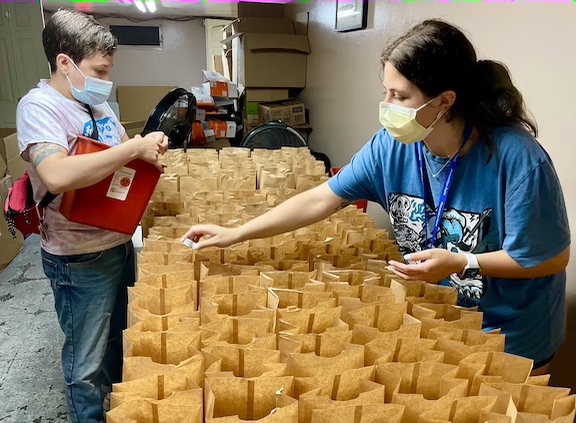
Emilio and Abby of SSP prepare safer-use kits ahead of afternoon syringe exchange. -
Prevention Point staff conduct over 2,267 community overdose prevention trainings every year. Everyone should be equipped with the knowledge and medication to save someone’s life in case of overdose.
-
Our case managers and medical team help over 200 people start medication for opioid use disorder (MOUD) each year.
-
Prevention Point meets you in your neighborhood. We meet people where they are for syringe services, HIV and Hep C testing, overdose prevention, homeless outreach, and MOUD.
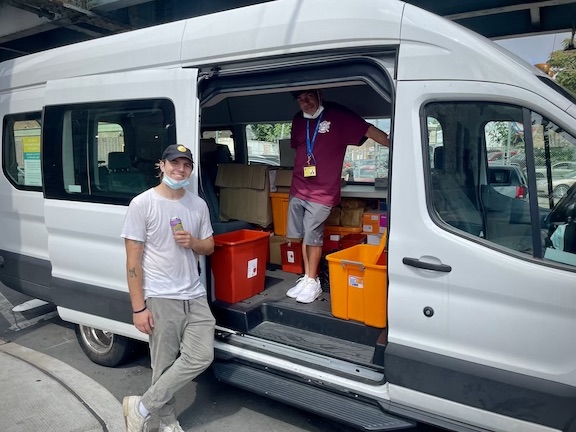
Jet and Pedro of SSP prepare the mobile van to hit the streets of Philadelphia. -
Since 2018, Prevention Point has hosted warming centers on the coldest nights of the year. This staff-led initiative provides hundreds of unhoused community members with a warm and safe place to rest.
-
In 2021, Prevention Point Philadelphia announced the launch of the Health Equity Projects and Research Center (HepTREC). This new program will sustain long-term internal research and expand PPP’s capacity to partner with external researchers.
-
Prevention Point Philadelphia staff administer nearly 1,300 HIV tests and over 1,200 Hepatitis C tests every year. Everyone should have low-barrier access to testing and the resources to make empowered choices about their personal health.
-
Prevention Point Philadelphia hosts monthly Community Cleanups. Every month we rally dozens of volunteers to clean up the streets in Kensington and show our commitment to the community!
-
Prevention Point Philadelphia takes treatment and recovery to neighborhoods across Philadelphia. Our Mobile MOUD program has become a national model.
-
In partnership with Step Up to the Plate, Prevention Point Philadelphia served over 861,500 free lunches to the Kensington community between April 2020 and December 31, 2021.
Overdose Prevention Coordinator Shawn Westfahl gives an overdose reversal training at a community event in West Philadelphia. -
Prevention Point has a team of specialized nurses and navigators who operate a wound care clinic three times a week. This team specializes in treating people with injection-related wounds. They saw over 1,348 visits in FY2022.
-
Prevention Point Philadelphia operates public restroom facilities on Kensington Avenue. Last year our restrooms saw nearly 71,000 visits, demonstrating the consistent and urgent need for this vital service.
-
Prevention Point Philadelphia loves our neighbors. In 2021, our staff distributed 452 turkey dinners to our neighbors over the winter holidays.
-
Prevention Point Philadelphia values feedback from the people we serve. In 2021, PPP started a bilingual Participant Advisory Board as a way for participants to offer feedback and inform our work.
-
We have partnered with over 50 other institutions, nonprofits, and small businesses across the Philadelphia region in the past two years to meet the needs of our participants and educate the public about harm reduction.